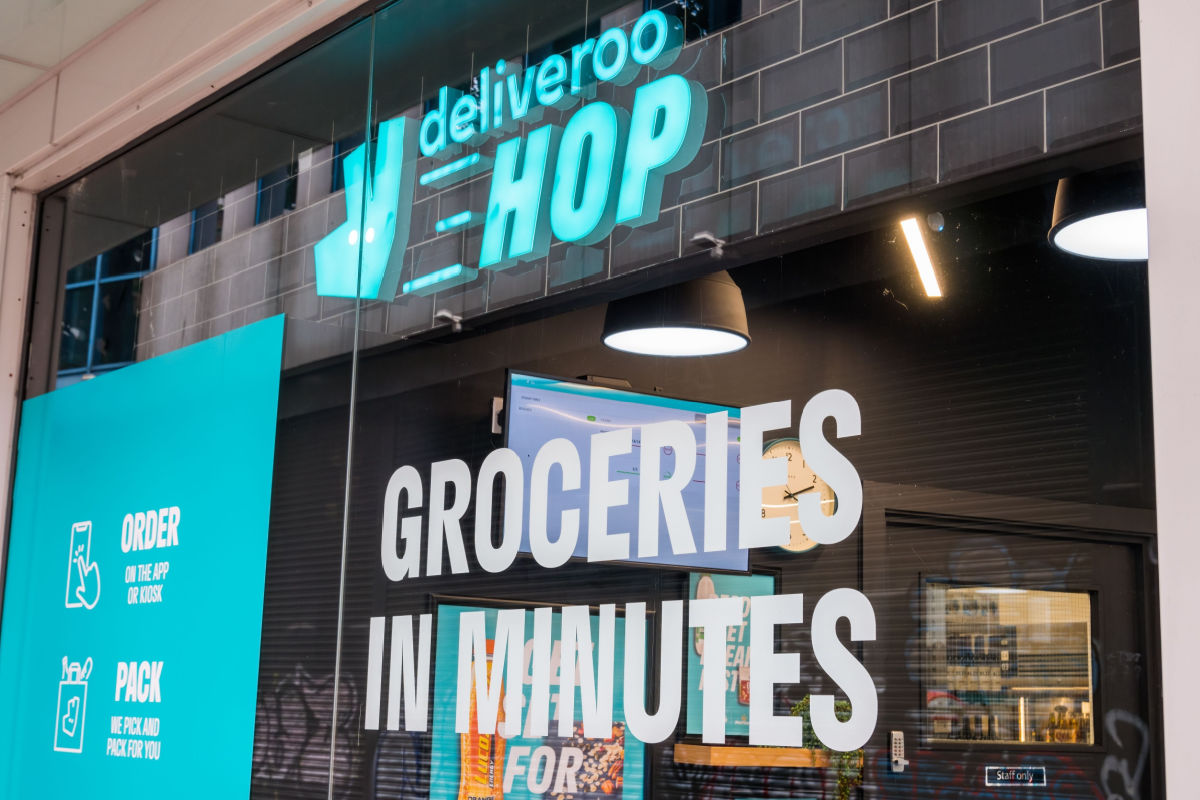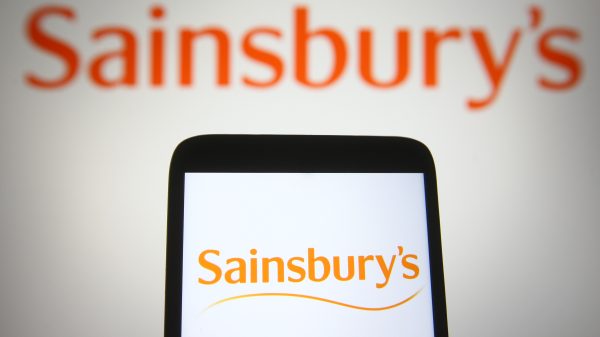As Getir, the quick commerce market leader, is set to unveil yet more job cuts, Vineta Bajaj – ex Ocado finance director and current CFO of pan-Europe online grocery firm Rohlik Group – looks into whether the speedy grocery delivery market is unsustainable.
The desire for speedy delivery has been a feature of big cities for many years, but the ‘need’ for delivery solutions in lockdown catapulted the cosmopolitan culture of convenience into a nationwide new normal.
This rapid change in consumer behaviour since the start of 2020 has created the opportunity for tech start-ups to capitilise on our need for speed.
But as we hit the third anniversary (yes, third!) of the start of the pandemic in Europe, and the world starts to move on from ‘Covid behaviours’, is the bubble about to burst on speedy delivery?
The rise, and stumble, of quick delivery
Every year the world of tech start-ups has its unicorn, its hot topic, its golden egg. And in 2021, the posterchild was “speedy grocery”.
Innovators and VCs couldn’t get enough of speedy grocery businesses, with data from Dealroom showing that $5.5bn was ploughed into European grocery start-ups in 2021.
This gigantic level of investment enabled many new (and some existing) speedy grocery delivery brands to hire en masse, grow revenues at home, and expand into new markets, at breakneck speed.
But, after a year of excitement and explosion, 2022 happened.
As the Russian invasion of Ukraine, the growing global cost-of-living crisis and soaring manufacturing and shipping prices started to set into our economies like rot, soaring inflation left consumers with less money to spend on the lifestyle they were used to.
Changes had to made, and cuts to the consumers’ purse strings needed to happen. This meant paying over the odds for convenience took a hit.
May 2022 was the crunch month in the industry. In the space of two days, German grocery app Gorillas, Turkish app Getir and British app Zapp laid off workers, followed by news of market exits.

Just today Charged Retail revealed that Getir has called an all-company meeting in its UK office next week where hundreds of job cuts are expected to be announced.
Even where acquisitions were made, such as Getir’s acquisition of Gorillas — two of the largest players in the sector – both companies saw cuts to their valuations in the deal terms.
In reality, Gorillas had no other choice but to sell, as despite head count reduction, the path to profitability was going to take a lot longer than the burn rate allowed.
Getir became the only realistic acquirer and swapped a cash deal for a stock-only deal. Gorillas was worth $100M in cash and a single-digit equity in Getir.
Now Gorillas is worth a small portion of Getir stock if Gorillas’ investors put in $100m.
Getir can however strip out a bunch of Gorillas’ costs to reduce its burn rate. Getir in the UK have turned to franchising its dark stores, with three quarter’s of Getir’s 100 UK stores now being run by franchisees.
Dutch online supermarket Picnic saw its losses triple to €114m in 2021, despite turnover increasing by half to €719m.

Staying in the Netherlands, online supermarket Crisp almost doubled its loss in 2021 to €15.2m, but remained optimistic, saying these “start-up losses” are not a problem.
Somewhere, if not everywhere, in the system, costs are increasing. While revenues soar, profits are now falling.
These companies are swelling. Recruitment of head office staff, the need for fleets of drivers to fulfil the promise of speed, the rising cost of fuel, and the running costs of office space, wages, advertising are sucking up every last pound and euro these new innovators have.
It’s no wonder margins are slimming, and therefore VC’s aren’t seeing the returns they expected or were promised.
Customer demand dips
One indicator that consumer desire for speedy delivery is slowing down is the reduction of downloads of the apps these businesses are so dependent on.
All the major speedy grocery apps — Getir included — have seen year-on-year dips in their download rates.
British startup Zapp has seen the biggest drop in downloads between Q3 2021 and Q3 2022, with 91% fewer downloads. Getir dropped 45%, Flink 47% and Gorillas 61%. Only GoPuff saw a less than double figure drop – with just a 6% fall.

But is this a change in desire, or is it because of a drop in advertising?
The market is unsurprisingly reliant on constant reinforcement to drive consumer use. But in what can only be assumed as a cost saving move, the companies appear to have slashed their marketing budgets.
According to data from Transport for London, grocery companies paid for 238 ad campaigns on London transport in 2021. By November 2022, they’d booked just 23.
Getir, which is by far the largest player in the sector, has raised the most — $1.8bn — and has the biggest team, employing approximately 27k people after a round of layoffs in May.
28m people have downloaded the app on Google Play worldwide so far – a figure that is way ahead of its rivals.
And while their other rivals struggle for cash, Berlin-based Flink aims for its core German business to be profitable by the end 2023, after hitting €400m in sales last year.
With more than $700m from backers including US delivery company DoorDash and Prosus, a top investor in food apps, Flink has so far defied the sector’s funding crunch that has forced rapid-delivery peers including Europe’s Gorillas, Weezy and Cajoo, and US-based Buyk and Fridge No More, to sell or shut down.
A focus on boosting profits
Food delivery businesses are now focussed on profit over growth.
The problem is that the ‘dark store’ model that many use is extremely difficult to get to profitability quickly.
One key strategy that is emerging is partnering with traditional, non-food, retailers. Retail partnerships allow food aggregators to expand their category offering and receive improved margins.
For example, Deliveroo UK is considering further retail partnerships, after partnering with Boots, Lloyds Pharmacy, Better Life, JD Sports and WHSmith.
The delivery giant has also launched its first physical retail store in London – Deliveroo Hop – partnering with Morrisons. Shoppers can order from 1,750 SKUs on digital kiosks and collect “in minutes”, or schedule delivery.
Boots UK is also expanding home and office delivery of toiletries, medicines, food & drink, beauty and gifting from Uber Eats– offering 900 SKUs from 125 stores.
Q-com and food aggregator partnerships are also hot – allowing grocery delivery firms and food aggregators to receive some of the benefits of a merger without actually having to go through a merger.
Many scale-ups in this space seem to be ‘dating each other’ and wondering whether a closer long-term relationship will help reach profitability and allow them to succeed.
For example, Just Eat Takeaway.com has partnered with Getir to list groceries on Jet’s platform in Germany. There’s are plans for this partnership to expand to UK, France, Italy, and Spain.
Also in the UK, Dundee-based Snappy Shopper has raised a seven-figure sum to invest in the convenience store home delivery platform’s growth plans and core technology.
The business is planning to capitalise on the slowdown of the dark store operating model and capture consumer demand by enabling existing local shops to offer a quick e-commerce service.
So far, Snappy Shopper has been focused on the UK convenience sector, but plans to expand to other high street retailers.
The year ahead
Overall, this all feels very familiar.
Every year, a hot new opportunity presents itself, but the consumer behaviour is often not long term enough to sustain it, or the external forces of an unstable landscape mean things don’t last as long as maybe they were predicted to.
But this is often the case though, isn’t it? Following a boom, to avoid a bust there has to be a period of consolidation.
It happened in fintech in 2021/22, so it really shouldn’t be a surprise that it’s happening for speedy grocery now too.
With inflation set to remain high in 2023, is the period of consolidation over, or is it just beginning?
The financial outlook for consumers is also tough – rows over pay and conditions continue to affect countries across the continent, war shows no sign of slowing down, and there’s a general feeling of instability across the world which is making progress in all areas slow down.
Even if speedy delivery model works harder and gets even quicker, the slowdown in investor excitement isn’t going to pass.











